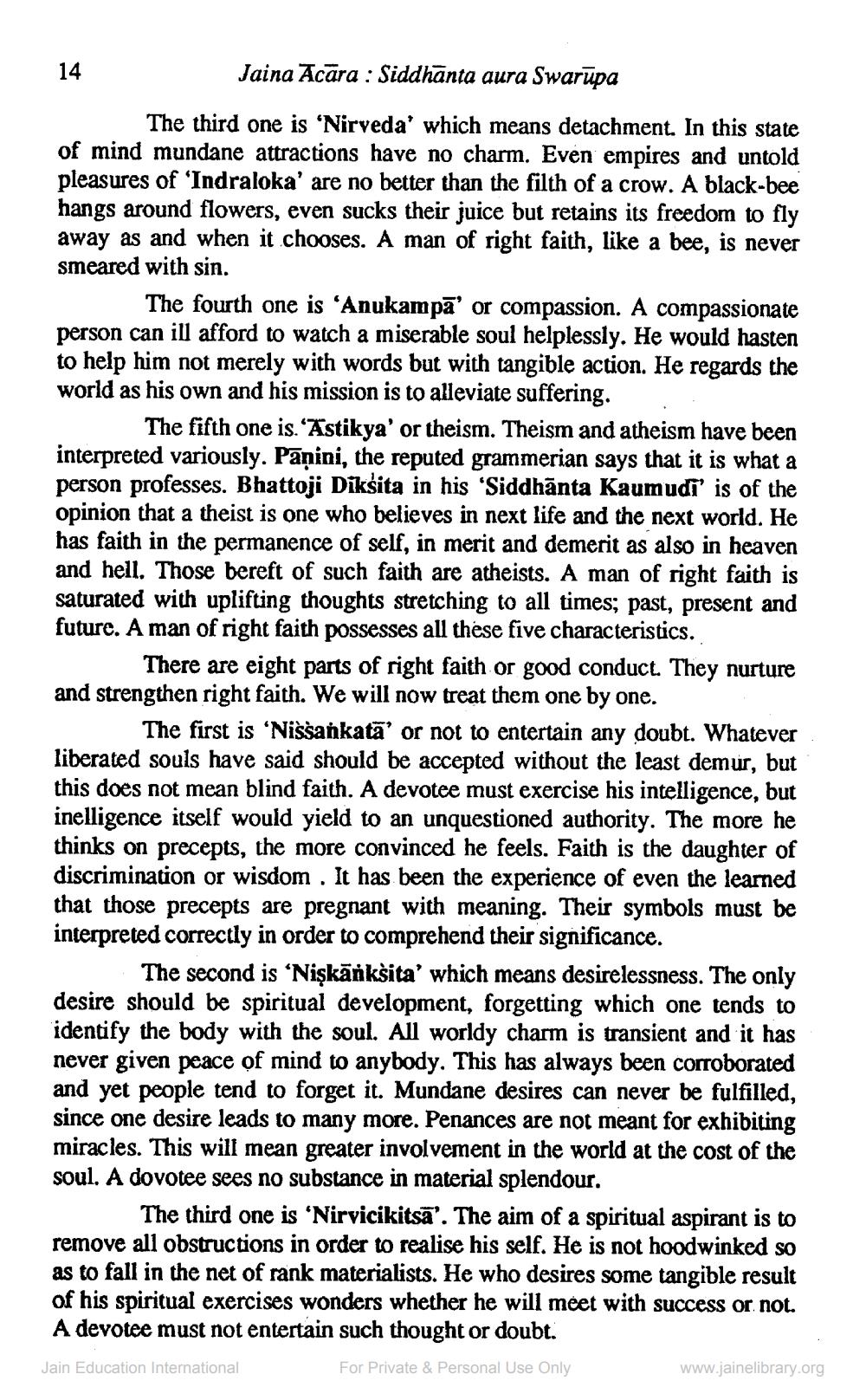________________
Jaina Acāra : Siddhanta aura Swarūpa
The third one is 'Nirveda' which means detachment. In this state of mind mundane attractions have no charm. Even empires and untold pleasures of 'Indraloka' are no better than the filth of a crow. A black-bee hangs around flowers, even sucks their juice but retains its freedom to fly away as and when it chooses. A man of right faith, like a bee, is never smeared with sin.
The fourth one is ‘Anukampā' or compassion. A compassionate person can ill afford to watch a miserable soul helplessly. He would hasten to help him not merely with words but with tangible action. He regards the world as his own and his mission is to alleviate suffering.
The fifth one is. 'Astikya' or theism. Theism and atheism have been interpreted variously. Paņini, the reputed grammerian says that it is what a person professes. Bhattoji Diksita in his 'Siddhānta Kaumudi is of the opinion that a theist is one who believes in next life and the next world. He has faith in the permanence of self, in merit and demerit as also in heaven and hell. Those bereft of such faith are atheists. A man of right faith is saturated with uplifting thoughts stretching to all times; past, present and future. A man of right faith possesses all these five characteristics
There are eight parts of right faith or good conduct. They nurture and strengthen right faith. We will now treat them one by one.
The first is 'Nissankatā' or not to entertain any doubt. Whatever liberated souls have said should be accepted without the least demur, but this does not mean blind faith. A devotee must exercise his intelligence, but inelligence itself would yield to an unquestioned authority. The more he thinks on precepts, the more convinced he feels. Faith is the daughter of discrimination or wisdom. It has been the experience of even the learned that those precepts are pregnant with meaning. Their symbols must be interpreted correctly in order to comprehend their significance.
The second is ‘Nişkānkšita' which means desirelessness. The only desire should be spiritual development, forgetting which one tends to identify the body with the soul. All worldy charm is transient and it has never given peace of mind to anybody. This has always been corroborated and yet people tend to forget it. Mundane desires can never be fulfilled, since one desire leads to many more. Penances are not meant for exhibiting miracles. This will mean greater involvement in the world at the cost of the soul. A dovotee sees no substance in material splendour.
The third one is 'Nirvicikitsa'. The aim of a spiritual aspirant is to remove all obstructions in order to realise his self. He is not hoodwinked so as to fall in the net of rank materialists. He who desires some tangible result of his spiritual exercises wonders whether he will meet with success or not. A devotee must not entertain such thought or doubt. Jain Education International For Private & Personal Use Only
www.jainelibrary.org




